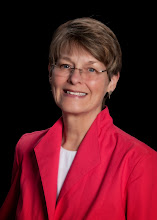Pollyanna. Mary Poppins. Happy Face. Rose-colored glasses. Our culture mistrusts a person whose view is habitually tinged with hope. On the other hand, people who score high on key measures of optimism experience greater achievement, better health, more enjoyment, and less depression than those with lower scores.
We may then ask, “If our habits trend to the half-empty glass, can we turn those habits around?” Psychologist Martin Seligman holds that we can. He urges us to observe our patterns of thought, and to generate alternative ways of explaining setbacks. In the process of debating with ourselves, we can grow the habit of embracing a challenge instead of giving up on it.
Last year, I took a pre-test for my practical coaching exam. In that exam, an instructor plays the role of client and the student plays the role of coach. The examinee must demonstrate 40 interactive coaching behaviors in the course of 30 minutes. In the practice session, I froze up and fell apart.
It took me more than a month to recover from that experience. My self-talk was unequivocal. “I can’t do this.” “I’ve always failed role-playing.” “Maybe coaching isn’t my calling after all.” “My brain just blanks out under pressure.” The underlying mantra, 24-7, was, “I can’t, I’ve never… I won’t ever.”
Eventually, with time and with the support of buddies, my deepest despair began to pass. I remembered that I had learned to speak Spanish fluently. A coaching session, like a language, meant using new vocabulary and syntax in conversation. I began to piece together a plan of study, drills, and practice that was modeled on my college Spanish class. Most importantly, I stopped saying “I can’t, I’ve never…I won’t ever.” I began to think, “I can do this!” Six months later, I passed the exam with flying colors and was certified as a wellness coach.
In filling the half-empty glass, I was eventually able to debate the assumptions about my capacity to grow a new skill. I found evidence that I had, indeed, mastered a similar and difficult challenge.
Seligman tells us that, in learning optimism, Step One is to check the facts. Does our initial gloomy bias recall only the downside of past experience, neglecting important data to the contrary?
Think of examples in your own life. Name a setback. Listen to yourself explain what happened and why. Like a detective, dig deeper for the rest of the story. Like a debater, challenge the assumptions of your dark side. Re-framing the past can energize the future, increasing the likelihood of success.
Until the next time, go well.
Pam
www.wellbuddies.com
Subscribe to:
Post Comments (Atom)

No comments:
Post a Comment